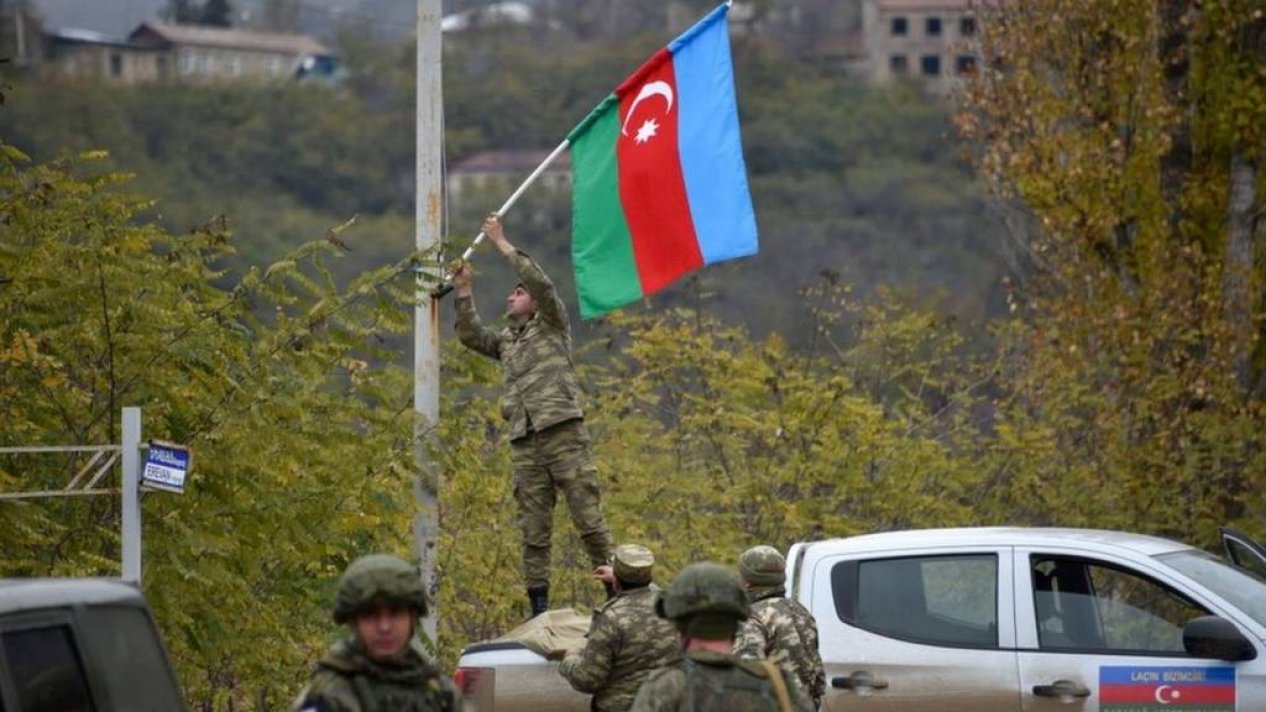
“The current reality is that Russia is ensuring the security of the Karabakh Armenians. If it hadn’t been for Russian [peacekeeping] forces, there would have been no Armenians in Karabakh now,” French Ambassador to Armenia Jonathan Lacote said in an interview with RFE/RL's Armenian Service Azatutyun. The ambassador added that at the November 9 statement doesn’t resolve all issues. Some provisions of this statement, including the release of prisoners of war, have not been fully complied with. The French diplomat said at the same that the truce accord brokered by Putin “did not solve all issues,” including Karabakh’s status, and needs to be complemented by an Armenian-Azerbaijani “political process” mediated by the Minsk Group co-chairs.
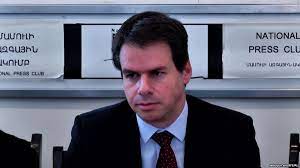
Jonathan Lacote
French Ambassador to Armenia Jonathan Lacote is known for his pro-Armenian statements. He recently expressed his position on the tension in the direction of Nakhchivan on the Azerbaijani-Armenian state border. Without investigating the causes of the tension on the border, Lacote showed his support for the Armenians on his social network account, sharing the status of "If Yeraskh (Arazdayan - ed.) does not sleep, Yerevan does not sleep." On the other hand, France is currently the only country that supports Yerevan in creating the impression that the "Nagorno-Karabakh conflict" is not over. In this sense, the ambassador's statements to RFE/RL's Armenian Service are politically motivated.
Among the ambassador's statements, only the sentence "November 9 statement doesn’t say anything about the future status of Karabakh" reflects the reality. Indeed, the trilateral November statement signed as a result of the Second Karabakh War does not contain a word on status. But the reasons why this word was not included in the statement are also known. That’s because Azerbaijan liberated most of the lands occupied by Armenia for about 30 years during the Second Karabakh War. Defeated on the frontline, Armenia was forced to sign a tripartite statement and undertook to leave three more regions, Agdam, Kalbajar and Lachin, and complied with that commitment.
During the Second Karabakh War, Azerbaijan complied with the requirements of four UN Security Council resolutions on Karabakh, signed by France as well. Those resolutions demanded Armenia's withdrawal from the occupied territories unconditionally. The Azerbaijani side also stated that there will be no status issue.
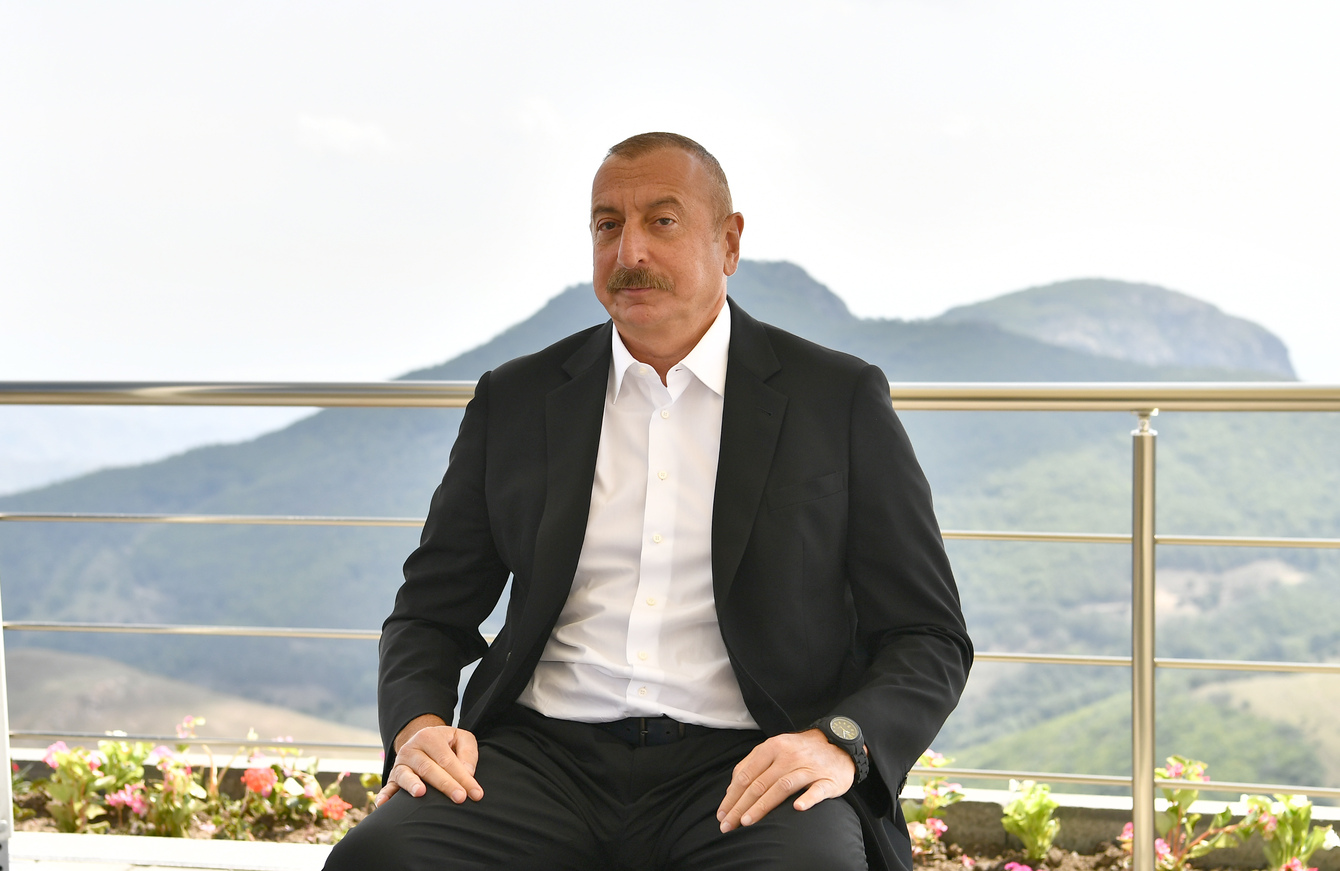
President of Azerbaijan Ilham Aliyev addressed the nation on the day of signing the November statement. Ilham Aliyev reminded that when the Azerbaijani side offered autonomy to Nagorno-Karabakh, they said "it is an independent state." The President of Azerbaijan said that Karabakh will not have status during his presidency: “But where is the status? The status went to hell. It failed; it was shattered to smithereens. It is not and will not be there. As long as I am President, there will be no status.”
Recently, the president of Azerbaijan once again touched upon this issue. When commenting on the fact that EU President Charles Michel did not use the words "Nagorno-Karabakh" and "status" during his visit to Baku, Ilham Aliyev said that Armenia should draw conclusions from this: "There is neither a status nor Nagorno-Karabakh. The Nagorno-Karabakh autonomous region was established on 7 July 1923 as an artificial formation. The Armenians represented in the Soviet government at the time simply made this illegal and completely unfounded decision, and Soviet Azerbaijan, of course, had to agree and come to terms with that at that time. Nobody even asked us. But it was a completely unfounded and artificial entity,” said the president.
“A month after the restoration of independence, in November 1991, the parliament of Azerbaijan abolished the Nagorno-Karabakh autonomous region. These are documents, and it was abolished legally,” he added.
As for the ambassador's saying that "the November 9 statement does not resolve all issues, some provisions, including the release of prisoners of war, have not been fully complied with," the Azerbaijani side returned all Armenian servicemen captured during the Second Karabakh War.
Jeyhun Bayramov: Azerbaijan handed over all prisoners of war to Armenia, this topic is closed
Baku doesn’t count Armenian servicemen currently on trial in Azerbaijan as prisoners of war. After the end of the war in Karabakh, or more precisely after the signing of the November 10 statement, these people crossed into the Khojavend region of Azerbaijan and committed provocations there, killing 5 Azerbaijani servicemen, wounding 3 servicemen and 1 civilian. After that, the Azerbaijani side conducted a special operation to detain the terrorists. Baku has sent a letter to the UN Secretary General in this regard.
The ambassador's opinion "If it hadn’t been for Russian [peacekeeping] forces, there would have been no Armenians in Karabakh now" is also unfounded. The point is that the Azerbaijani side stressed that Armenians living in Karabakh, both before the Second Karabakh War and after the war, are citizens of Azerbaijan. President of Azerbaijan Ilham Aliyev said in his address to the nation and in interviews with foreign media that the Armenian population of Karabakh will continue to live there, they are Azerbaijani citizens.
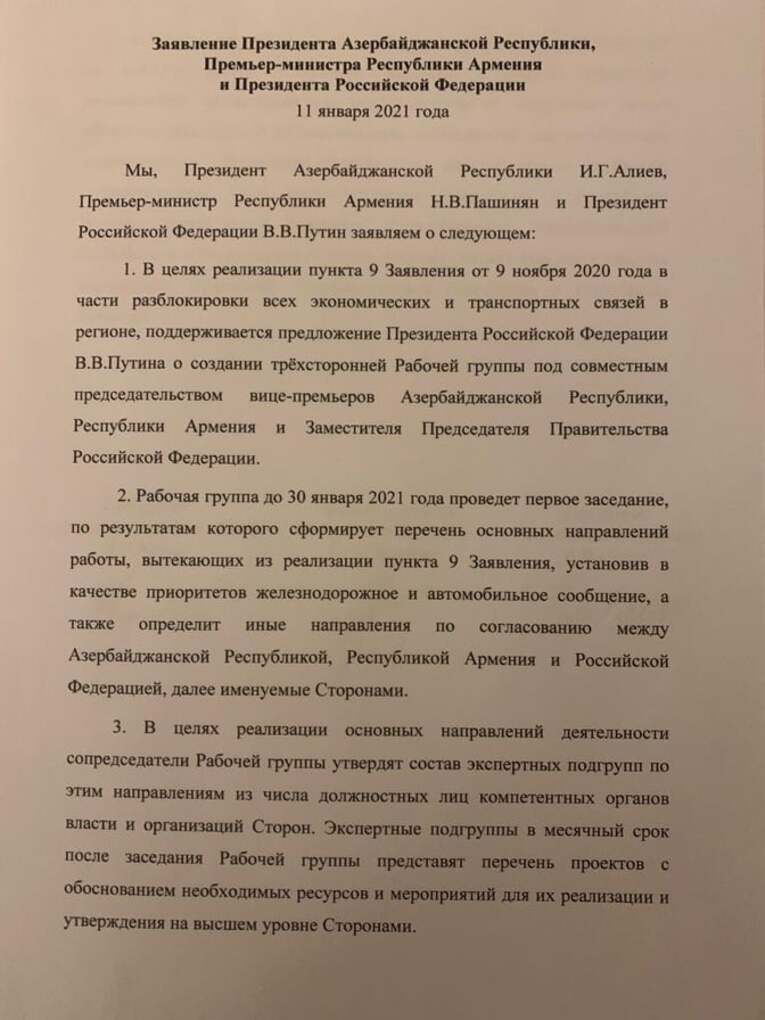
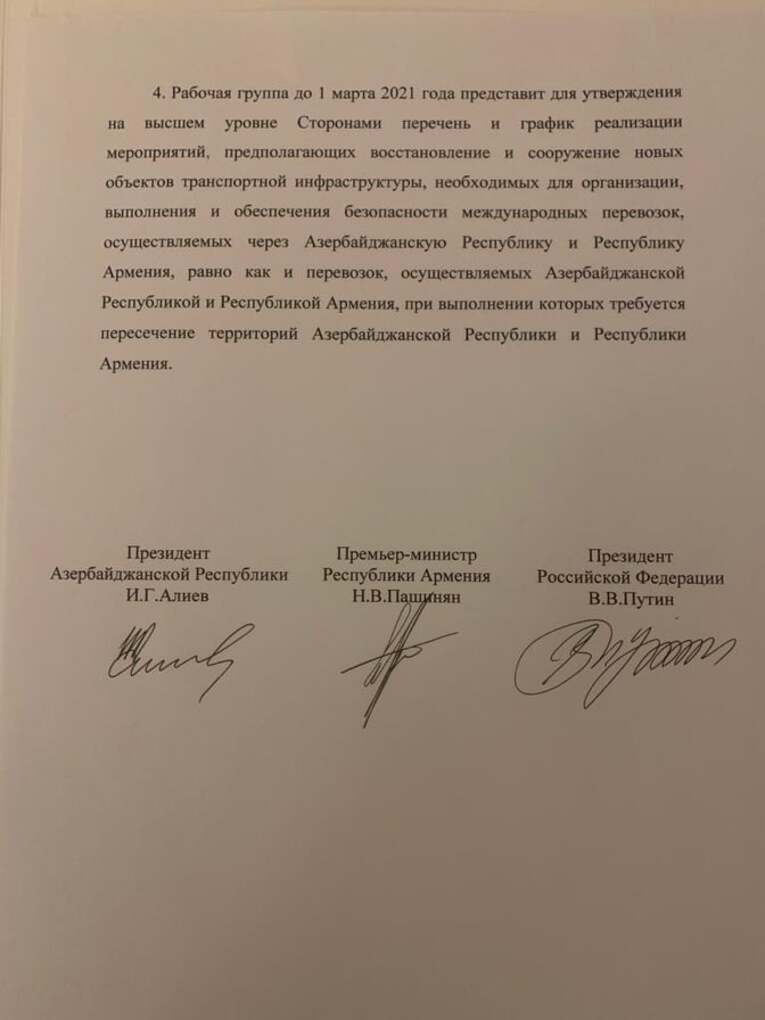
As for the ambassador's opinion that "the November 9 statement does not solve all issues," in fact, this is the position of Paris. France is simply trying to create such an image. In fact, the document envisages all the steps for the post-war period. Most importantly, an issue that could play the role of a guarantor of peace, such as the opening of transport corridors, was raised. Moreover, the Moscow Tripartite Declaration dated January 11, 2021 was signed, which envisages the realization of this point. The reference to the November statement in the January 11 statement means that this statement is based on the continuation of the settlement process, so this document will play a key role in the next steps.
Azerbaijan has taken a clear position on the French diplomat's statement that "it is necessary to strengthen peace, ceasefire and start a political process between Armenia and Azerbaijan under the auspices of the OSCE Minsk Group.
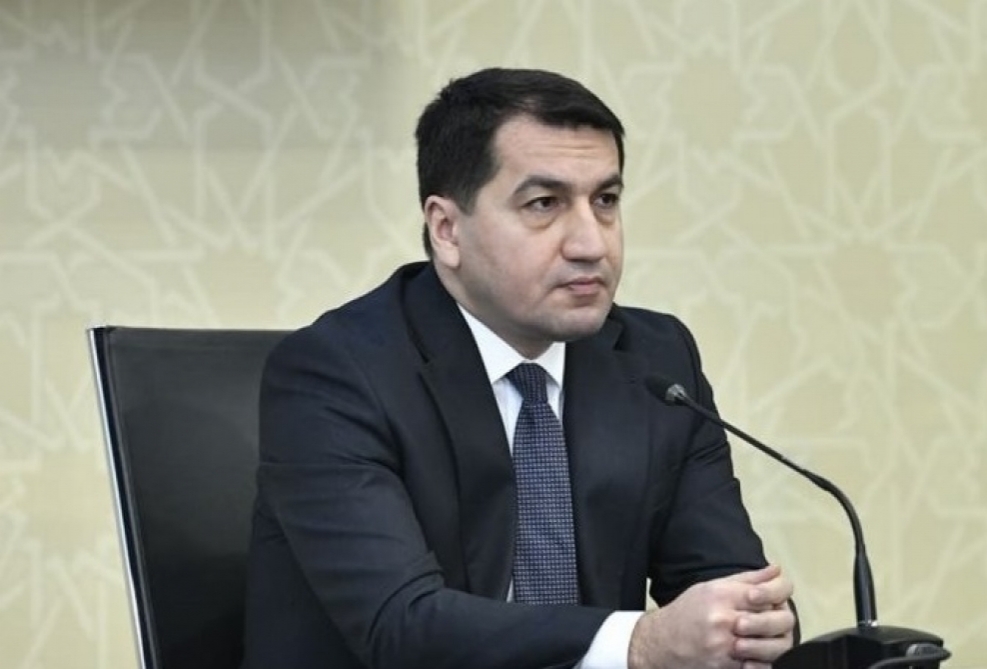
"Thus, Baku has not made any statement on the exclusion of the OSCE Minsk Group from the process. It simply stressed that the OSCE Minsk Group must adapt to the new reality. Hikmet Hajiyev, Assistant to the President of the Republic of Azerbaijan, Head of the Foreign Policy Department of the Presidential Administration, said that the previous recommendations and principles of the OSCE Minsk Group on the conflict do not work. He said that the Minsk Group can contribute to peacebuilding through various projects in the future.
Igor Korotchenko: OSCE Minsk Group has exhausted itself
A similar opinion was expressed in February this year by Russian Deputy Foreign Minister Andrei Rudenko in response to the question "What are the prospects for the Minsk Group format in the final settlement of the Nagorno-Karabakh conflict?" He said that the provisions of this format were reflected in the November statement. Therefore, the OSCE Minsk Group and its co-chairs can be active in strengthening confidence-building measures between Armenians and Azerbaijanis.




















